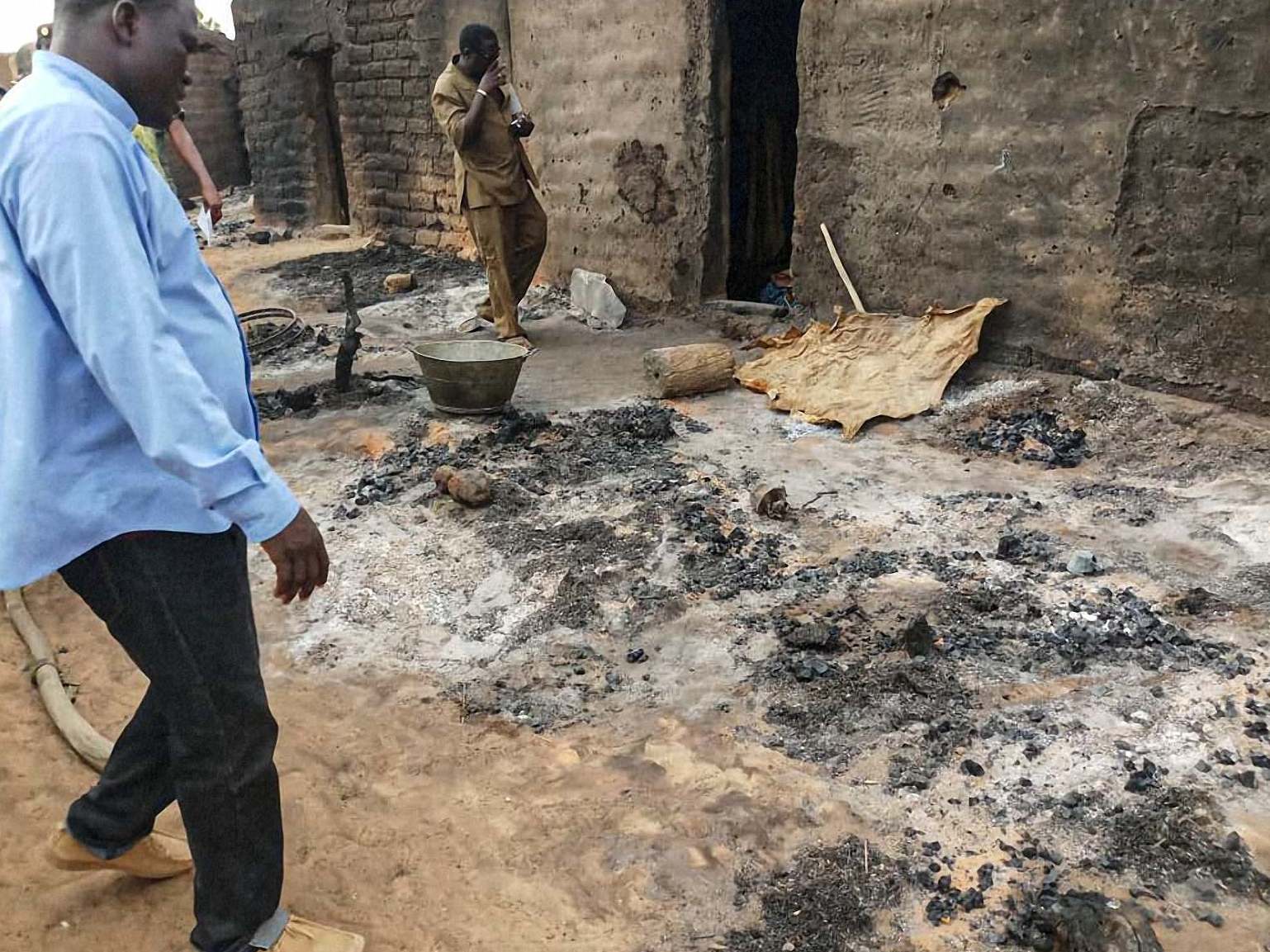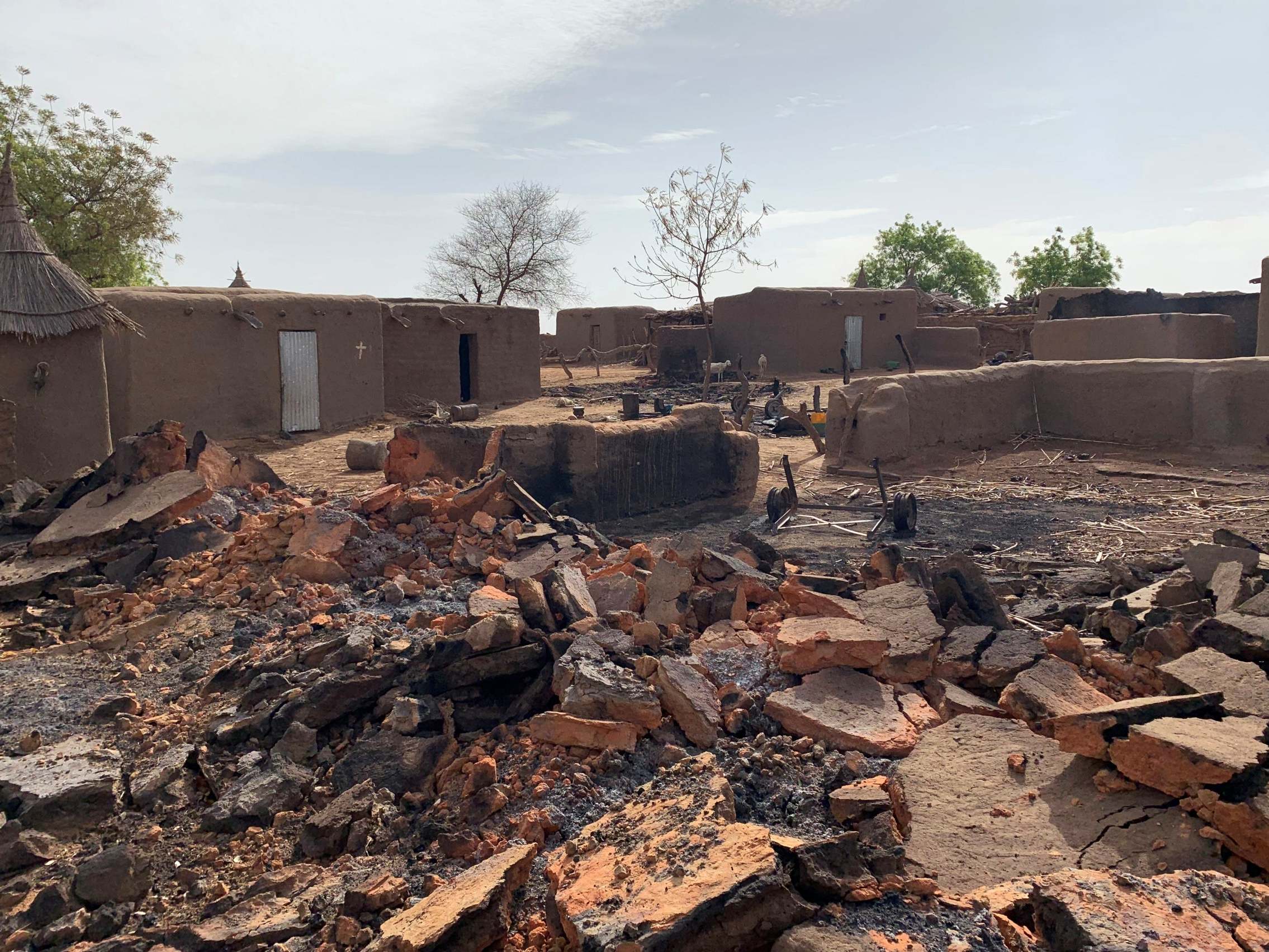Gunmen on motorbikes kill 41 people in Mali villages
Recent months have seen tit-for-tat violence between Dogon and Fulani ethnic groups

Your support helps us to tell the story
From reproductive rights to climate change to Big Tech, The Independent is on the ground when the story is developing. Whether it's investigating the financials of Elon Musk's pro-Trump PAC or producing our latest documentary, 'The A Word', which shines a light on the American women fighting for reproductive rights, we know how important it is to parse out the facts from the messaging.
At such a critical moment in US history, we need reporters on the ground. Your donation allows us to keep sending journalists to speak to both sides of the story.
The Independent is trusted by Americans across the entire political spectrum. And unlike many other quality news outlets, we choose not to lock Americans out of our reporting and analysis with paywalls. We believe quality journalism should be available to everyone, paid for by those who can afford it.
Your support makes all the difference.Gunmen on motorbikes killed 41 people in separate attacks in two villages in central Mali, a local mayor said on Tuesday.
Issiaka Ganame, mayor of Yoro, said around 100 unidentified men stormed his village and opened fire on Monday evening. He said the same group later then carried out another shooting attack on the nearby village of Gangafani 2.
The victims of Monday evening’s massacres were mostly ethnic Dogons, claimed Mr Ganame, who said 24 people were killed in Yoro and another 17 murdered in Gangafani 2.
“About 100 unidentified armed men circulating on motos all of a sudden invaded Yoro and fired on the population,” Mr Ganame said. “Then they descended on the village of Gangafani 2, which is about 15 km [9 miles] away.”
Tit-for-tat violence in recent months has pitted Dogons against members of the Fulani ethnic group. Attackers believed to be Fulani raided a Dogon village on 9 June, killing at least 35 people.
In March, suspected Dogon militiamen are believed to have killed more than 150 Fulani in two villages in central Mali, one of the worst acts of bloodshed in the country’s recent history.
The latest deaths will only add to security fears in central Mali, where ethnic militias regularly slaughter civilians from rival groups and Islamist militants are also active.
President Ibrahim Boubacar Keita’s government has vowed to disarm the militias but has struggled to do so. The groups are looked to for security by local communities, who do not trust the government to protect them.

On Tuesday, two labour unions representing civil servants called on state administrators in the Mopti region, where most of the attacks have occurred, to leave their posts and decamp to the regional capital due to death threats.
“President Keita said he was going to disarm all the militias. We take note and await the disarmament of the militias and implementation of protection measures,” said Ousmane Christian Diarra, secretary-general of the National Syndicate of Civil Administrators.
French forces intervened in Mali, a former French colony, in 2013 to push back a jihadist advance from the north. But the militants have since regrouped and use northern and central Mali as launch-pads to stage attacks across the region and stoke tensions among different communities.
Additional reporting by Reuters
Join our commenting forum
Join thought-provoking conversations, follow other Independent readers and see their replies
Comments